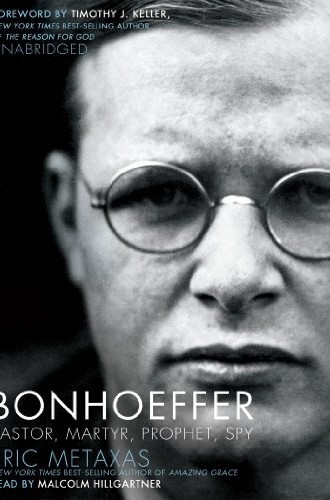Alan Wolfe on Metaxas's Bonhoeffer
In the Feb. 3 New Republic, Alan Wolfe, the magazine's
go-to reviewer on matters of religion, seems to buy into the account of Dietrich Bonhoeffer that Eric
Metaxas gives in his new biography Bonhoeffer: Pastor, Martyr, Prophet, Spy.
Wolfe shows none of the reservations expressed, for example, by
the Century reviewer Clifford Green, who notes that Metaxas misleadingly presents
Bonhoeffer as a conservative evangelical (American-style) rather than as what
he really was, a very modern postliberal Lutheran influenced by Karl Barth.
Wolfe has never shown much interest in theological nuances, but
this review displays something else: his unease with religious commitment
itself. At the end of the review, Wolfe strains to force Bonhoeffer's
courageous and deeply theological witness against the Nazis into a secular
framework of personal "choice":
Bonhoeffer may have been convinced that God was telling him what
to do, but I am not convinced. Ironically, Metaxas's passion, the intensity of
his engagement with his subject, wound up persuading me of the importance of
the very autonomy that Bonhoeffer believed that we do not possess. Even if God
told Bonhoeffer what to do, it was Bonhoeffer who chose God in the first place.
It was not a humble servant of the Lord who involved himself in the resistance,
but a singular human being who, for whatever reason, was able to know what to
do when faced with the problem of evil.
Wolfe seems almost desperate here to blunt the force of
Bonhoeffers's Christocentric religious witness and to affirm instead the modern
value of "autonomy" and the importance of being "a singular human being" who
"chooses" what he wants-whether that be "God" or something else. The important
thing is that it's the individual who chooses-which Wolfe affirms by way of his
own sheer assertion: "But I'm not convinced . . ."
Bonhoeffer's point, of
course-the one that Wolfe does not want seriously to consider-would be that
humans are deluded if they try to think of human choice or of being a "singular
human" apart from thinking of God.







